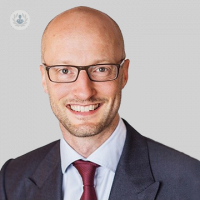Can you live a long life with liver disease, and how do hepatologists help?
Written in association with:Liver disease is a broad term that encompasses a range of conditions affecting the liver, from fatty liver disease and hepatitis to cirrhosis and liver cancer. While liver disease can have serious implications, many individuals can live long and fulfilling lives with proper management and care. Hepatologists—specialists in liver health—play a crucial role in diagnosing, treating, and managing these conditions to optimise outcomes and improve quality of life.

Can you live a long life with liver disease?
Liver disease prognosis depends on several factors. These include the underlying condition, its severity, and how early it is detected. Key considerations include:
- Early detection: Diagnosing liver disease in its early stages can prevent progression and allow for more effective treatment.
- Lifestyle modifications: Adopting a healthy diet, avoiding alcohol and managing weight can significantly improve liver health and slow disease progression.
- Treatment adherence: Following prescribed treatments, such as antiviral medications for hepatitis or therapies to reduce liver inflammation, can prevent complications.
- Regular monitoring: Routine check-ups and imaging can detect changes in liver health and guide timely interventions.
For individuals with advanced liver disease, such as cirrhosis or liver failure, life expectancy may be reduced, but advancements in treatments, including liver transplantation, have significantly improved outcomes.
How do hepatologists help?
Hepatologists are specialised doctors who diagnose and manage liver diseases. They provide comprehensive care tailored to the patient’s condition and needs. Their expertise includes:
Accurate diagnosis
Hepatologists use advanced diagnostic tools, such as blood tests, imaging (ultrasound, CT, or MRI), and liver biopsies, to identify the type and severity of liver disease.
Personalised treatment plans
Treatment approaches vary based on the underlying condition:
- Fatty liver disease: Lifestyle advice, weight management, and dietary interventions.
- Hepatitis: Antiviral medications for hepatitis B or C to prevent liver damage.
- Cirrhosis: Monitoring for complications such as varices or ascites, and prescribing medications to manage symptoms.
Preventing complications
Hepatologists work to prevent or treat complications like liver cancer, infections or portal hypertension by using a proactive and multidisciplinary approach.
Coordination of advanced treatments
For severe cases, hepatologists coordinate advanced therapies, including liver transplantation, which can be life-saving for patients with end-stage liver disease.
Monitoring and long-term care
Liver diseases often require lifelong management. Hepatologists provide regular monitoring to ensure the liver remains as healthy as possible, adjusting treatments as needed to optimise outcomes.
Living a long life with liver disease is possible, especially with early intervention, lifestyle changes and expert care. Hepatologists are key partners in managing liver health, offering tailored treatments and ongoing support to improve both longevity and quality of life. If you have concerns about your liver health, seeking care from a hepatologist can be an essential step toward effective management and a healthier future.


